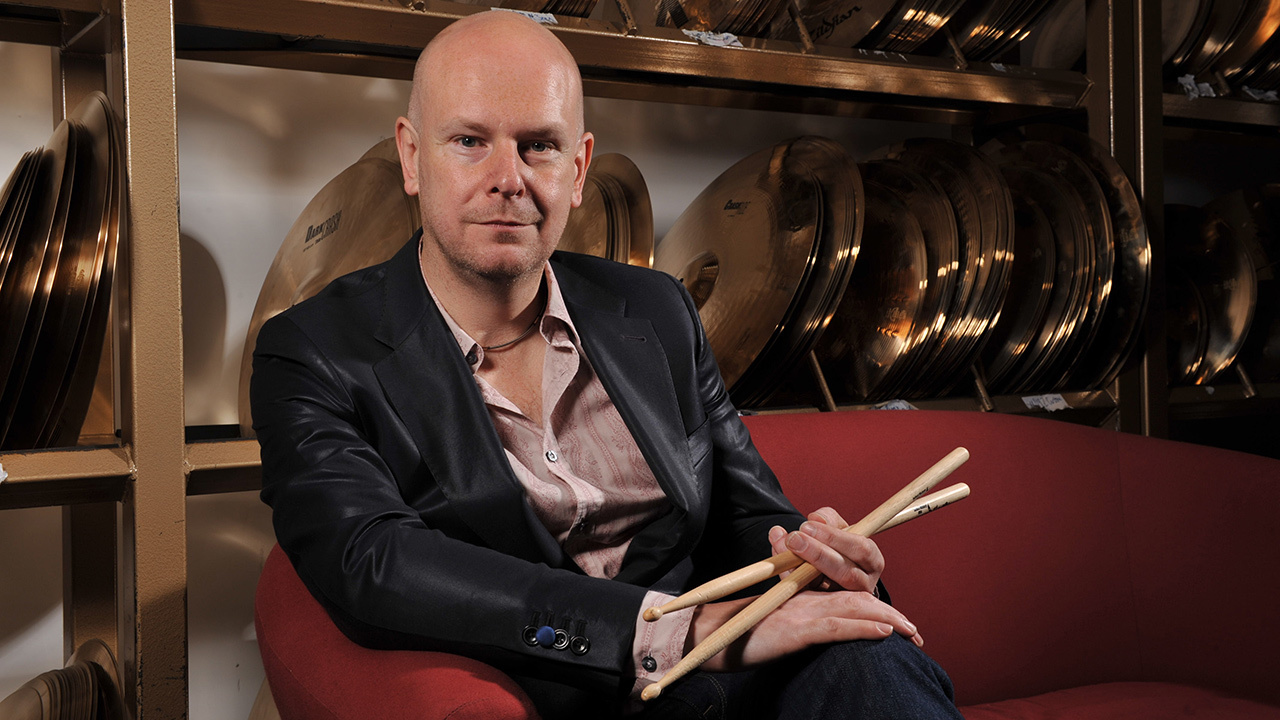Dipping a toe into unknown waters is nothing new to the members of Radiohead, and their drummer Philip Selway’s latest solo album marks another new milestone – his first soundtrack for a film. Directed by Polly Steele and starring Juliet Stevenson, Let Me Go is an adaptation of Helga Schneider’s memoir. It tells the story of Helga’s mother’s decision to abandon her child in order to work as a guard in the Nazi concentration camps of 1940s Germany, and their eventual painful reintroduction to one another. Selway was brought on board by Steele and co-producer Lizzie Pickering, whom he knew from collaborating on a series of benefit concerts. As he explains, tackling the subject matter came with great responsibility…
Let Me Go is a soundtrack you can listen to as a standalone record, even if you haven’t seen the film. Was that deliberate?
That’s what I wanted to do from the outset, and I think that defined part of the way we approached it. I had the Radiohead schedule coming up at particular points in the filming schedule, so it was a case of working with the screenplay and how I responded to that. And I’d seen the rushes as well, so I responded to the cinematography. But it was the ultimate thing in my mind that I wanted to release a soundtrack album that had to work as a record within its own right.
Do you think this release shows that you now have more confidence in yourself as a solo artist?
Definitely. I’ve grown in that respect. I wanted to write for dance and I wanted to write for film. And I got the opportunity to write for dance a couple of years ago with the Rambert dance company, and then this film project came along and it just felt like the right project, the right people to be working with. It felt like an incredibly powerful screenplay. I probably wouldn’t have been in a position, in myself, if you went back about four or five years ago, where I’d have felt able to jump in and say, “Yes, I can do that.”
Do you have any favourite soundtracks?
The big soundtrack writers I’ve always really responded to are people like John Barry and Lalo Schifrin, Leonard Bernstein, but none of them really inspired this one. It was a very different kind of texture to the film. Recently I loved what Geoff Barrow did for Ex Machina. You have to get the textures right, you have to get the emotional resonance of it right.
With the subject matter, was it a big responsibility to set the right tone?
Absolutely. It’s based on Helga Schneider’s real-life story, and this meeting between her and her mother actually happened, so you’re very respectful of that. Somebody has shared that story, and then the wider story as well, the background of what happened in the 1940s, and in the concentration camps. One of the things that really drew me was the inter-generational story, and the complexity of how generational trauma plays out in all the different generations. If you’re dealing with that in a real-life situation, you’d tread softly. That played into how I approached it.
Did you go on-set when they were filming?
I did! Just seeing that come to life, that was really exciting, and that played into the process of making the music. Knowing that Juliet Stevenson was going to play Helga informed how I wrote Helga’s Theme. And it was great to meet everybody. It makes sure you’re all coming from the same place. I got to be in the film as well! There’s a scene in a nightclub in Vienna and I’m one of the audience members in silhouette. It’s the scene where Lou Rhodes [singer-songwriter, solo and with Lamb] is performing her song. I think I make a good silhouette. That’s the extent of my acting ability.
How did Lou Rhodes get involved?
There’s a nightclub scene and we wanted this chanteuse figure performing. I approached Lou and asked her if she’s be up for it. She came along incredibly generous-spirited and very open-minded to it. I love Lou’s voice, and she’s an amazing performer and a great songwriter. What she’s done with Lamb and her own solo material, it has that emotional impact to it. If you’re thinking of someone to cast as a chanteuse, you can’t do better than Lou.
There seems to be a taste for World War II films at the moment, presumably because the world seems to be going mad again. Was that a consideration?
What I liked about the film was approaching it from a slightly different angle – from the angle of Traudi, the mother who abandoned Helga. She’s a very strong presence. And you could see it would be a very timely film – what had become normalised to her in the context of Nazi Germany. You watch it and you have no sympathy for what she’s saying, you’re appalled by it, but you realise that was her normality, and seeing how a character can get to that point. Particularly at the moment – look at Charlottesville and the rise in hate crime, and intolerance seems to be gaining traction. It’s very timely, because it makes you reflect on yourself and what you’ve got to guard against in yourself. But it’s such a powerful message and lesson to put across.
Have you got plans for more solo records?
Yeah, I want to make another solo record. We’re going to be taking a little bit of time off from Radiohead so I can start getting my plans together. With Radiohead it gets up and running and then it goes dormant for a while, it’s how we work. We’ve all got different projects we want to get on with, having had a couple of years of touring. I’ve loved this tour. What makes sense of a band continuing is when you feel like you’re always improving in some way, and I felt in terms of live shows, it stepped up another notch.
So what will happen with Radiohead after your break?
Ooh, we’ll have to see! It’s been the same for the past 30 years, so it’s business as usual in that respect.
Let Me Go OST is out via Bella Union on October 27. For more information, see www.philipselway.com.
Philip Selway - Let Me Go (Official Soundtrack) album review

